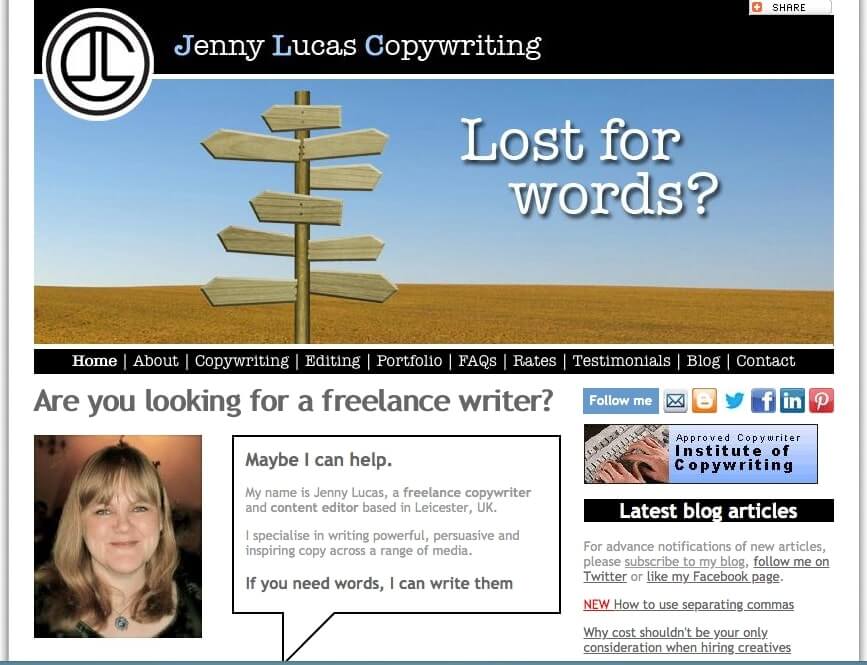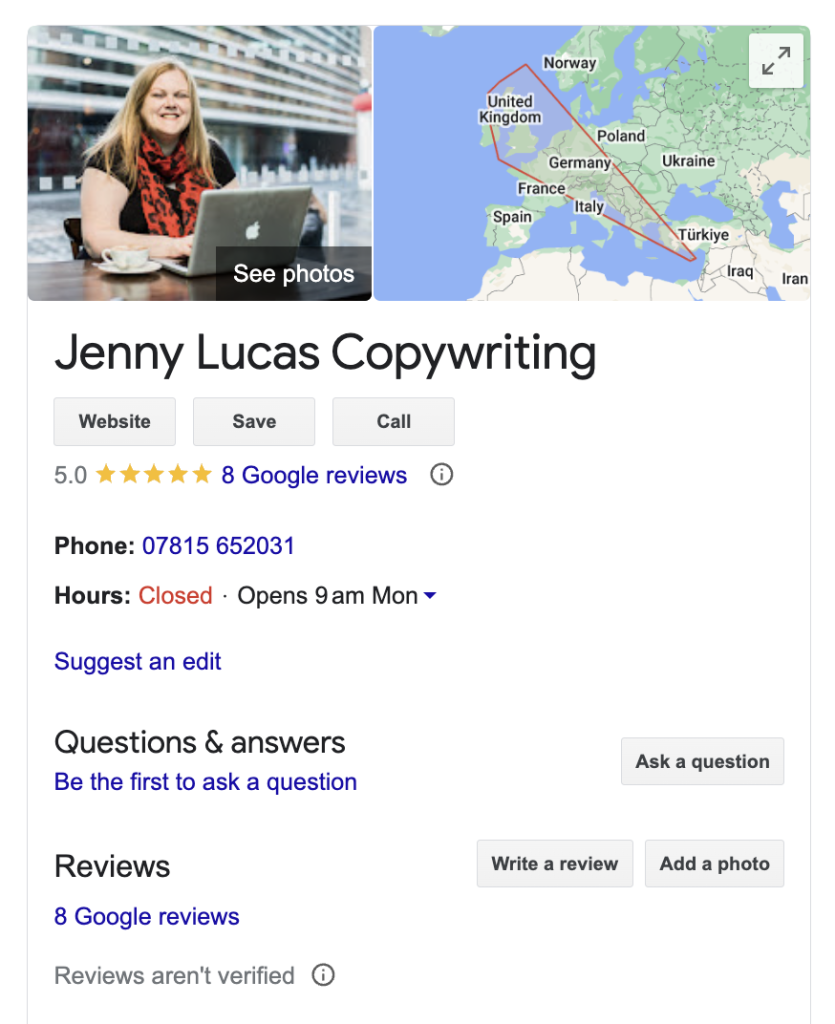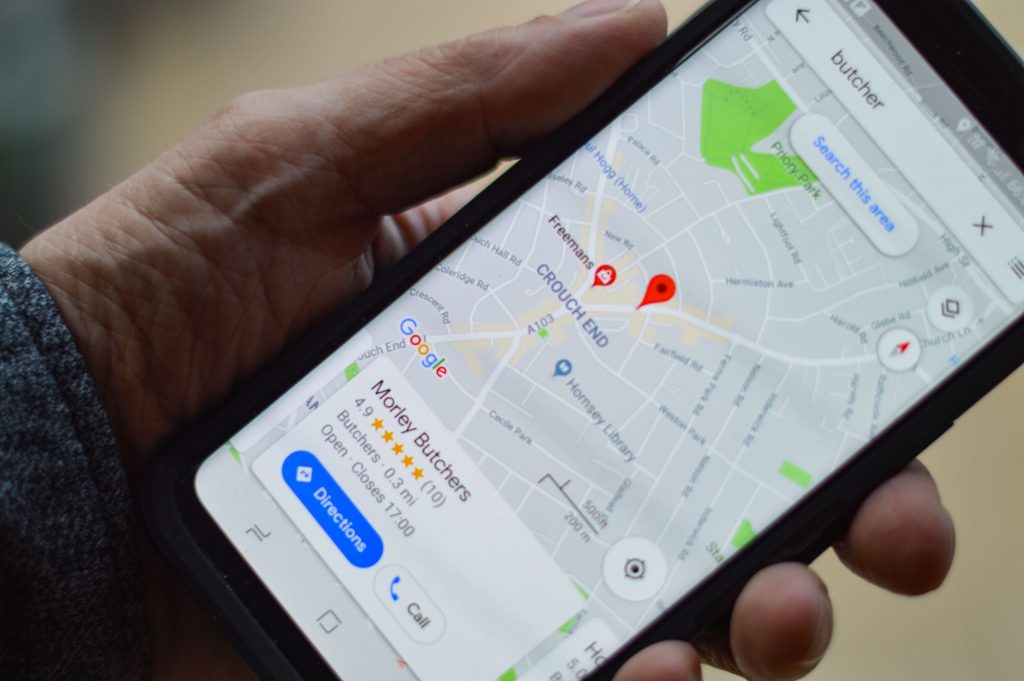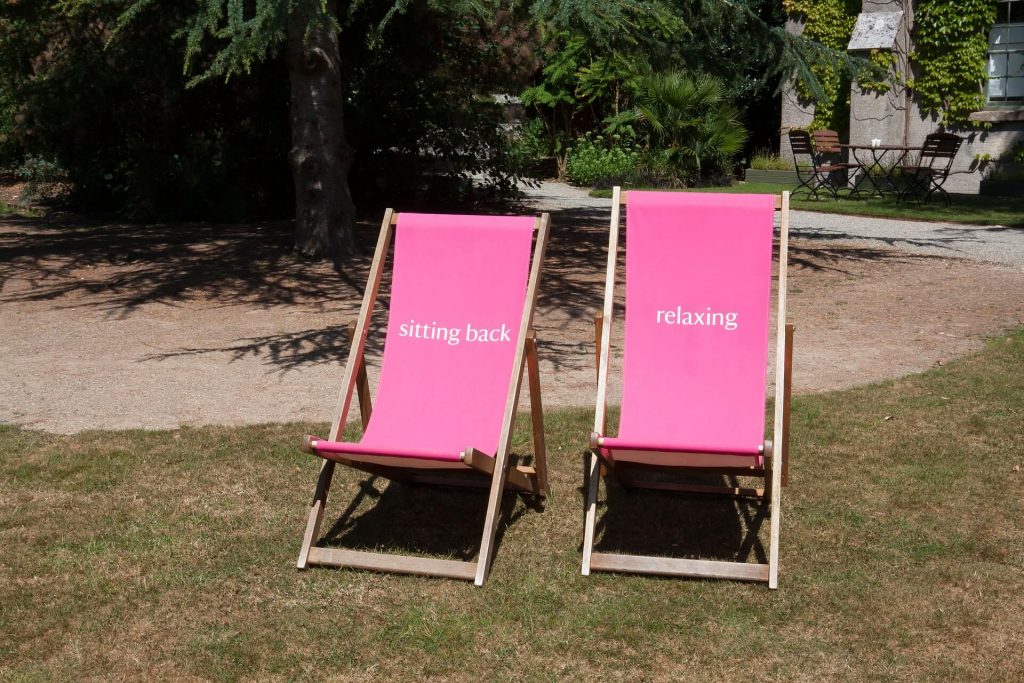UPDATED JANUARY 4, 2024
This post is a mythbuster — of sorts
Because I want to talk about what it’s like to spend nine years at the top of Google’s organic search. And why, if you’re looking for new clients, it may not be the holy grail you think it is.
Every business covets the top spot
According to some of the SEOs I work with, wanting to get to the first page of Google is the primary goal of many a new client. And it’s not difficult to understand why.
Research from Backlinko shows:
- Google’s #1 result gets 27.6% of all clicks
- The top 3 Google search results get 54.4% of all clicks
- Only 0.63% of Google searchers clicked on something from the second page.
If your business is selling products and you’re looking for a high volume of traffic and conversions, investing in SEO and aiming for that top spot could do wonders for your business.
But if you have a business like mine, where you’re providing a service and working closely with your clients, you might find other methods are as effective for getting new business.
Let me tell you why.
I launched Jenny Lucas Copywriting in 2011
I launched my first website in May 2011. Back then, my home page her section looked like this:


When I launched this site, it got to Google’s number one spot in less than a month. Today’s new websites can take six months to start ranking — sometimes even longer.
Aside from some minor fluctuation, my site stayed at the top of Google for nine years. It achieved this because I optimised it well and kept it regularly updated.
For anyone who wants proof of my SEO copywriting skills — there you have it.
My website has served me well
When I originally launched my business, I already had a full time job. And, while I wanted to make a success of it, I never had any expectations beyond making some extra pocket money.
But as my website reached the top spot, enquiries started to come in and I found myself working a lot of evenings and weekends.
Now, I’m not going to say the top spot doesn’t have its benefits. It’s brought me a lot of work. So much, in fact, that I’ve never had to pay for advertising.
But…
The kind of clients it’s brought me haven’t always been ideal.
For example, I’ve had to deal with people who:
❌ Were time-wasters
❌ Hadn’t bothered to read my site
❌ Didn’t have a clue what I did
❌ Had a virtually non-existent budget
❌ Only wanted something cheap
❌ Didn’t know what they wanted
❌ Just wanted to copy a competitor
❌ Went incommunicado/ghosted me
❌ Were impossible to please
❌ Messed me around — a lot.
These kinds of people are nobody’s ideal client. They’re not discerning about what they want for their business or who they choose to work with. And they tend to go for the first thing they find — which will be you, if you’re sitting in the top spot.
Alternatives to page one
Having an online presence is still important. And you still need to optimise your website, so people can find you. But there are alternatives to being on page one — some of which will bring in more ideal and better quality clients.
Here are some of them.
Google Business Profile
A Google Business Profile is a free business profile that connects you with prospective customers via Google Search and Google Maps. Being featured on Maps is particularly helpful if you do a lot of your business in your local area.
The profile you can create is comprehensive and allows you to highlight your products and services. You can also add content like your company history, photographs and videos. On larger devices, the Google Business Profile appears to the right of the search results list and will look something like this:


Some startups have been able to use their Google Business Profile as a temporary website, giving them the web presence they needed until they could afford to invest in a proper one.
Your GMB listing won’t rank like a website, but it will show up if you’re the best option in the local area, or if a potential client Googles your business name directly.
Social media
Much of my best business now comes from my LinkedIn profile, where I’ve built a following of people who like and appreciate my content.
When they’ve approached me for work, it’s because they’ve read my posts and have a better sense of who I am, what I’m about and the value I can bring.
I wrote a separate article on my approach to LinkedIn and how I’ve used the platform to generate new business.
Of course, LinkedIn isn’t the best channel for every business, but there are lots of social media platforms available to you. You just need to find one that suits your business — and where your audience hangs out.
Content marketing
Content marketing is an alternative form of advertising whereby businesses create content that will be interesting, inspiring, helpful or entertaining to their target audience.
Some examples of content marketing include:
- Blog articles
- Videos
- Podcasts
- Webinars
- Ebooks
- Photography
- Infographics.
Content marketing is a good alternative to Google’s first page because it’s more targeted towards the kinds of businesses you want to work with.
To get maximum distribution, work on building your social media networks by attracting the right kinds of people, then share the content extensively.
Reviews and testimonials
Reviews and testimonials provide social proof that your business is good to work with. Clients can post their reviews on third party sites, like TrustPilot, or on your Google Business Profile. And you can copy these testimonials onto your website if you want to show them there too.
Make a point of asking for a review when you’ve finished a project and email your client the posting link to make it nice and easy for them.
Use your website
All of the above methods should be used to direct more high quality traffic to your website. Because, even if it’s not on page one, your website is still the face of your business online and is the first place potential clients will go if they want to look you up.
Be discerning
I’ve been running my business for 12 years now. I’ve learned a lot and I’ve changed the way I do things.
I’m more choosy about who I work with and which projects I take on. And I don’t blindly accept every client who sends me an enquiry.
The result has been that I’m taking on more enjoyable and fulfilling projects — while steering away from the ones that I suspect will be troublesome.
It’s a good way to work, if you can afford to.
I’m still showing up on page one, but since my website dropped down a couple of places, I’ve actually been getting better quality enquiries from more discerning clients — and that’s been a real positive.
Do you need a copywriter?
I’m Jenny Lucas, a freelance copywriter and content writer based in Leicester — at the heart of the UK.
I specialise in SEO copywriting, creating effective web copy and strategic blog content to help businesses rank on Google, attract better clients and make more sales.
You can find out more about me, what I do and the value I can bring to your project on my main website.
Or, if you’d like to discuss a project, please get in touch.


You might also like…






